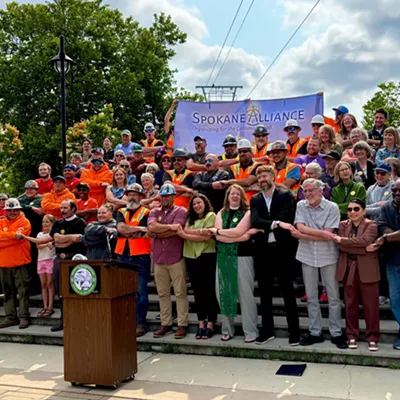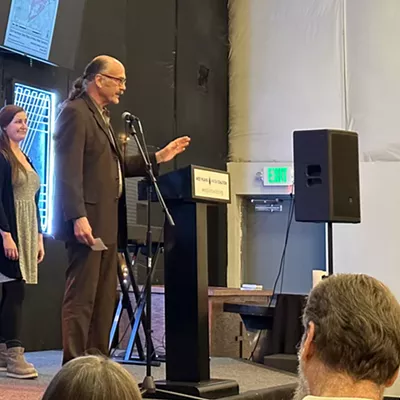Here's the thrust: We know - based on unassailable, unchallenged scientific fact -- that the world is warming up and that it's our fault. We know that world-warming of the kind we see today will, eventually, have disastrous effects. Despite this, we've allowed ourselves to be lulled into out-of-control carbon consumption by political spinners. We're quite literally a world of smokers killing ourselves with carbon emissions and lying to ourselves about it. Gore thinks we're delusional, and he may be right -- but after decades of organized environmental activism and very little success in limiting carbon dioxide emissions, Gore's mission, it seems, is marked with a bit of delusion itself. Righting the ship isn't going to be easy.
He uses the successful international campaign to fix the hole in the ozone (which was led by the United States) as proof that we can change our ways. It's a decent example, but he makes too much of it. The hole was created by CFCs, which were used in very specific products, making them easy to isolate and eliminate. CO2, however, is different. There's no way to eliminate carbon emissions altogether, so rather than quitting cold turkey, Gore is asking us to just cut back a tad.
Besides, reducing CFCs required a change of materials -- but reducing carbon emissions requires a shift of paradigms, from thoughtless consumption to careful usage, from wholesale rape to, you know, stewardship. Gore is asking for a change that's different, in kind, than anything we've ever tried. It's frustrating that, as a debate tactic, he'd skirt the depth and breadth of that challenge.
Aside from such flaws, however, An Inconvenient Truth is very well argued, first laying a foundation of scientific facts, then using those facts to scare the shit out of people, and then turning that fear into an argument for action based on ethical needs. Undermining counterclaims as he goes, Gore casts our response to global warming as a moral imperative rather than merely a political aim. Only then does he argue for political action.
Gore fashions his argument as a matter of life and death, making the main character in the struggle humanity itself (rather than the spotted owl or whatever). It's an effective argument on two fronts, both logically and emotionally.
You leave the theater, though, and you walk into a world full of Hummers, coal power, concrete jungles and multinational corporations. Suddenly Gore's affable, articulate drawl begins to drown in civilization's din. What felt like a rousing call to arms suddenly starts to feel like a whisper of calm from the middle of a frenzied, suicidal mob.
There's a second clutch of fear that happens in that moment -- nice work breaking down that fourth wall of cinema, Al -- and that's the fear that An Inconvenient Truth's moral imperative will be lost amid pervasive apathy, special-interest spin and a century's worth of entropy.
An Inconvenient Truth is a fine, simple, entertaining film. Let's hope that somehow it will also be a mind-changing one. (Rated PG)
Read Ed Symkus's interview with Al Gore in the & lt;a href=" & & http://www.inlander.com/inlandway/inlandway.php" & Arts & amp; Culture section & lt;/a & .














